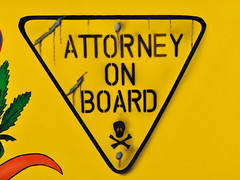
The Ontario Association of Family Mediators “Code of Professional Conduct” states that mediators must inform clients of the advisability of obtaining independent legal advice, both from the outset of the mediation and prior to signing any mediated agreement. Indeed, many mediators will not accept as clients people who refuse to obtain independent legal advice. Sometimes people who are working with a mediator are dismayed to find this out. “We want to stay out of court!” they protest. “Why do we need lawyers?”
The short answer: Your goal is not just an agreement. Your goal is a durable agreement, one that neither party will be motivated to challenge in the future. A durable agreement will save you time and money in the long run. It will provide stability for everyone involved and allow both parties to get on with their lives.
There are two main reasons why consulting a lawyer is important for crafting a durable agreement. First, each party needs a lawyer to certify their financial disclosure. If it turns out that one of the parties has (whether by mistake or on purpose) misrepresented his or her financial situation, any agreement reached on the basis of the misrepresentation may not be durable. The other party would have a reason to challenge the agreement in court.
Second, both parties need independent legal advice. This means that each party needs to know their rights under the law, and to what extent (if any) the mediated agreement deviates from these legal rights. For example, if one of the parties agrees to forgo spousal support, she needs to know what her legal entitlements are so that she can make an informed decision. If she makes a decision without having all of the relevant information, then any agreement she signs may not be durable. She would have a reason to challenge the agreement in court. Now, some people, for all kinds of reason, decide to accept an agreement that does not reflect their legal entitlements. Some agree to settlements that provide less than their legal entitlement. Some agree to settlements that are more generous to ex-partners than is strictly legally required. Many different kinds of agreements may be fine, as long as everyone is fully informed about their rights and obligations under the law.
Independent legal advice means that each party needs a separate lawyer. By definition, one lawyer cannot offer independent advice to two parties in the same dispute. It is a good idea to consult with a lawyer early on in the mediation process, and be informed about your rights and obligations as you proceed. This is likely to save you time and money in the long run. If you’ve developed an agreement on the basis of misinformation or misunderstanding, a lawyer may advise you to start over.
Finally, be sure to engage a lawyer who has expertise in family law. Don’t hire your cousin the corporate lawyer or the really likeable real estate lawyer who helped you buy your house. Family law is complicated and you want to make sure that whomever you work with is well-informed. If you’re determined to stay out of court, make sure your lawyer knows this and respects your wishes. (And to find a lawyer who is also determined to stay out of court, consider working with a collaborative lawyer.)
No comments:
Post a Comment